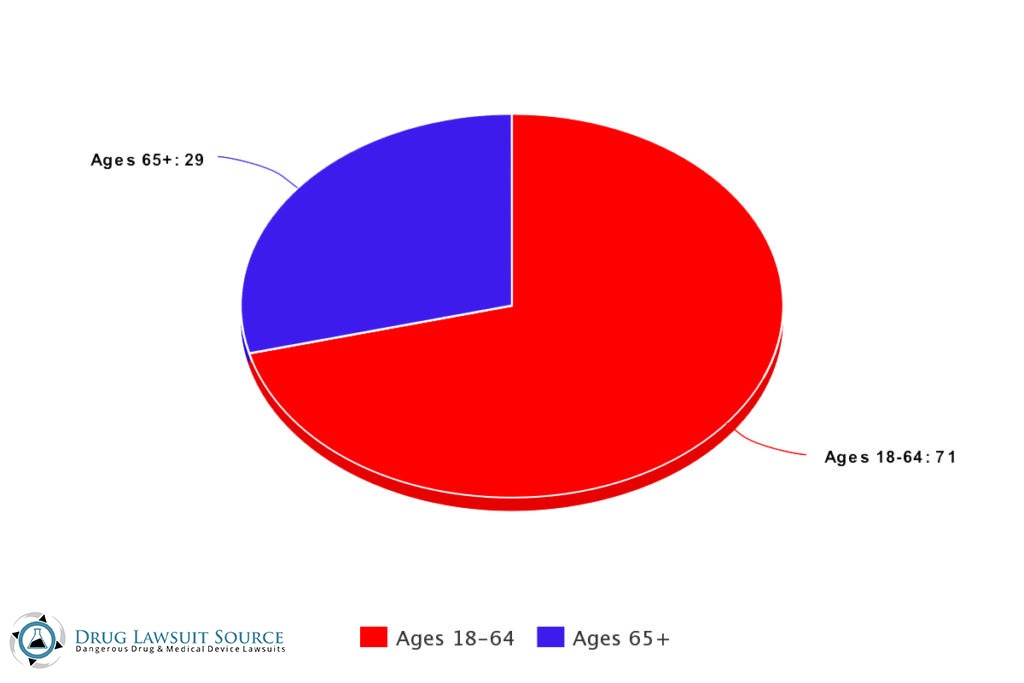Recognizing Your Legal Rights in a Dangerous Medication Claim
In the world of pharmaceuticals, browsing the intricacies of a dangerous drug lawsuit can be intimidating. As individuals end up being significantly aware of the prospective threats connected with specific medications, comprehending their lawful civil liberties becomes critical (Trulicity Lawsuit). From identifying the legal basis for submitting a legal action to considering the choices between a class action and a private case, there are crucial considerations to be made. The intricacies of seeking countervailing damages and the importance of sticking to the statute of constraints add layers of complexity to the procedure. However, with the guidance of lawful guidance, people can begin on a journey to insist their civil liberties and look for justice when faced with harm brought on by unsafe medicines.
Lawful Basis for Legal Actions
Exploring the lawful grounds for pursuing an unsafe drug claim calls for a detailed understanding of pertinent laws and precedents. When thinking about lawsuit against a pharmaceutical business for an unsafe medicine, one need to establish that the drug in inquiry posed unreasonable threats that were not adequately disclosed to consumers. This normally includes showing that the medicine manufacturer stopped working to caution about recognized threats, misrepresented the medication's safety or efficacy, or taken part in deceptive advertising and marketing practices.
To be successful in an unsafe drug suit, plaintiffs usually depend on legal concepts such as negligence, stringent liability, or violation of guarantee. Carelessness cases argue that the maker did not exercise sensible care in guaranteeing the security of the drug. Strict liability holds the producer liable for any kind of issues in the item, despite intent or neglect. Breach of guarantee claims insist that the maker stopped working to support pledges or warranties concerning the medicine's safety and security or performance.
Kinds Of Compensatory Damages
Countervailing damages in a hazardous drug lawsuit incorporate financial restitution granted to plaintiffs to make up for losses sustained because of the damage triggered by the medication. These problems are made to make the victim whole again, both economically and non-economically. There are 2 major kinds of offsetting damages that may be awarded in a hazardous drug suit: financial problems and non-economic damages.

Both non-economic and economic compensatory problems play a vital role in making certain that individuals harmed by hazardous drugs obtain ideal payment for their losses.
Statute of Limitations

Missing the law of constraints due date can have severe repercussions, as it might lead to the situation being rejected by the court. Once the law of constraints has actually run out, the complainant may lose the right to look for lawful recourse versus the celebration in charge of the damage caused by the dangerous drug. It is necessary for individuals considering a dangerous drug suit to consult with a qualified lawyer without delay to recognize and comply with the appropriate law of limitations in their situation.
Course Action Vs. Person Suits
Offered the varying law of restrictions in dangerous medicine legal actions, people must meticulously evaluate the choice between pursuing a class activity or a specific claim. Class action lawsuits involve a team of complainants jointly filing a claim against a defendant, commonly a pharmaceutical firm, for the same problem - in this instance, here are the findings injury caused by a hazardous medicine. These lawsuits can be useful as they settle resources, boost utilize against the defendant, and provide a sense of uniformity amongst affected people. In a class action suit, individuals might have less control over the case's direction and the final negotiation quantity.
On the other hand, individual lawsuits supply even more autonomy and control to the plaintiff. By seeking a specific suit, a person can tailor the lawful strategy to their details circumstance, potentially causing a much more favorable and individualized result. Private legal actions can be much more taxing, expensive, and may result in reduced compensation compared to an effective class action claim. Ultimately, the decision in between a course action and a private lawsuit should be based on the individual's situations, desired degree of involvement, and the legal suggestions received.
Looking For Lawful Advice
In browsing the complexities of a harmful drug claim, safeguarding skilled legal guidance is critical for making sure a informed and solid lawful technique. When looking for lawful guidance for a dangerous medicine legal action, it is important to find a regulation company or attorney with experience in pharmaceutical litigation. These cases commonly entail elaborate Our site clinical and scientific details, calling for a legal representative that recognizes both the legal aspects and the clinical nuances associated with such legal actions.
Professional lawful advise can aid people understand their legal rights, analyze the strength of their situation, and browse the complex legal treatments linked with harmful medicine suits. Additionally, a skilled attorney can give support on whether to go after an individual lawsuit or join a class-action claim, based on the certain situations of the instance.
Furthermore, lawful advise can assist in collecting proof, preparing legal files, bargaining with pharmaceutical business or their lawful agents, and standing for clients in court if the instance mosts likely to trial. By getting the assistance of knowledgeable attorneys, individuals can increase their opportunities of achieving a favorable end result in a harmful medication legal action.

Conclusion
Finally, understanding your lawful civil liberties in a hazardous medication claim is crucial in seeking payment for any kind of harm triggered. Knowing the legal basis for suits, kinds of countervailing problems readily available, law of limitations, and the difference in between course action and individual lawsuits can aid people navigate the lawful procedure successfully. Seeking lawful advise is critical in ensuring your rights are shielded and promoting for the compensation you are worthy of.
Countervailing problems in a hazardous medication suit include monetary restitution awarded to complainants to compensate for losses sustained due to the injury caused by the medication.The law of restrictions in a dangerous medication suit develops the timeframe within which a complainant should submit a lawful claim versus the accountable event for the damage created by the drug.Offered the varying statute of constraints in hazardous medicine suits, individuals need to you can look here very carefully weigh the choice in between going after a class activity or an individual claim. Specific lawsuits can be a lot more taxing, expensive, and may result in reduced payment contrasted to a successful course activity claim. Understanding the legal basis for legal actions, types of countervailing damages available, statute of constraints, and the difference in between course action and specific claims can help individuals browse the lawful procedure successfully.